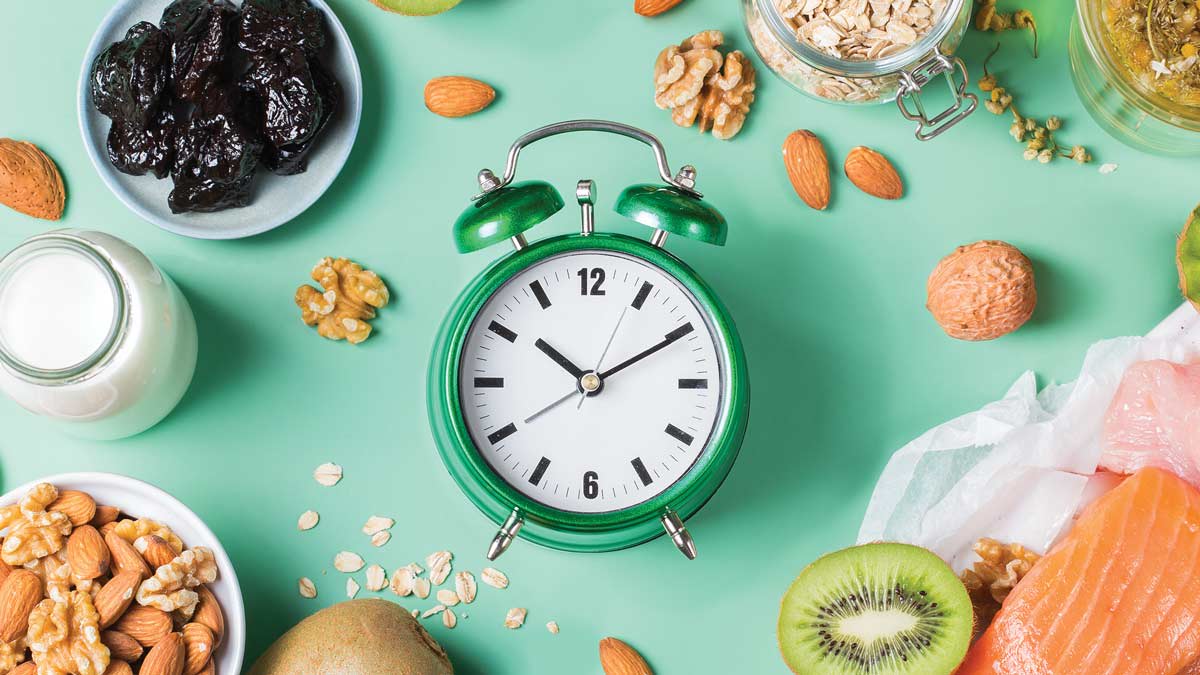“No individual food can work magic on your sleep,” says Arman Arab, PhD, a research fellow in the medical chronobiology program at Brigham and Women’s Hospital in Boston. “You need to follow a healthy diet over time to see positive effects.” Focus on these steps:
Put more plant foods on your plate. Diets that have been shown to improve sleep have one thing in common: All have lots of fruits, vegetables, legumes, and whole grains. A 2023 study published in Sleep Health, for example, found that people who followed a healthy plant-based diet had 55 percent higher odds of better sleep quality. And the Mediterranean diet, which is heavily focused on plants and has few animal products, was linked to a 14 percent lower risk of insomnia in a 2024 review of 37 studies published in the journal Sleep Medicine Reviews.
Such a diet may improve sleep in two ways. Plant foods help the gut make short-chain fatty acids. And several of those foods (including tomatoes, walnuts, and cherries) are good sources of melatonin. Others—like legumes and leafy greens—are rich in tryptophan, the precursor to melatonin.
A plant-forward diet also increases your intake of antioxidant polyphenols. Some research has found that a higher intake helped people fall asleep faster and stay asleep longer. Polyphenols also suppress the production of inflammatory cytokines and boost the production of anti-inflammatory ones.
Fill up on fiber. Found in all plant foods, fiber improves the health of your gut microbiome and helps control overall inflammation and the release of inflammatory cytokines. Fruits, nuts, vegetables, legumes, seeds, and whole grains are all great sources of fiber.
Choose anti-inflammatory fats. “Using olive oil and consuming other poly- and monounsaturated fats can help reduce inflammation,” Arab says. These fats are found in avocados, nuts, and fatty fish. Limit your intake of saturated fat (found in foods like red meats and butter), which can be inflammatory.
Get plenty of “helper” nutrients. Your body requires certain vitamins and minerals to help convert tryptophan into melatonin. These include vitamin B6, magnesium, and zinc. Vitamin D may also help with melatonin production and improve sleep in other ways.
If you eat well, you probably won’t need to take a supplement. “By adhering to a Mediterranean or other healthy, plant-based diet, you’ll have a good intake of all the nutrients that are essential for good sleep,” Arab says. For example, poultry, fish, and chickpeas are great sources of vitamin B6. Nuts and green leafy vegetables provide magnesium. Legumes and whole grains contain zinc. And mushrooms and salmon supply vitamin D.
Source link
